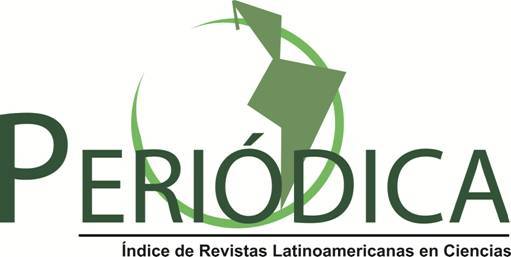THE INFLUENCE OF AN AMARANTH-BASED BEVERAGE ON CYCLING PERFORMANCE: A PILOT STUDY
DOI:
https://doi.org/10.18633/biotecnia.v20i2.597Palabras clave:
Amaranthus, Physical Endurance, Sports Nutritional Sciences, Carbohydrates, Plant ProteinsResumen
The present study aimed to evaluate the effectiveness of an amaranth based beverage (CHO-P) on cycling performance and hydration status, despite containing a total caloric content higher than that of a commercial sports beverage (CHO-P: 52.48 kcal per 100 mL vs CHO: 24 kcal per 100 mL). In a randomized, crossover design, six cyclists performed two exercise tests separated by seven days. Each test comprised two time-trials (32.20 km and 5 km) separated by 10 min of rest. Participants consumed either an amaranth-based beverage (CHO-P; 10% and 1.5% concentrations) or a commercial sports beverage (CHO; 6%). Changes in hematocrit and body mass, ratings of perceived exertion, and average power were assessed throughout both tests. 32.2-km time-trial performance was enhanced with CHO-P compared to CHO (54.3 ± 4.1 min vs 55.6 ± 4.8 min; p<0.05). However, no other variable measured in this study was significantly different between beverage types. Further laboratory based research should be performed to further explore the ergogenic potential of amaranth supplementation during endurance exercise.
Descargas
Citas
Alghannam, A.F. 2011. Carbohydrate–Protein Ingestion Improves Subsequent Running Capacity Towards the End of a Football-Specific Intermittent Exercise. Applied Physiology, Nutrition, and Metabolism. 36: 148-157.
American College of Sports Medicine. 2006. Guidelines for Exercise Testing and Prescription. Baltimore. 7th ed. Lippincott Williams & Wilkins. p. 123.
Aragón, L.F. 2009. Milk ... Sports Drink?. Kérwá. (consulted
/08/2015). Available from: http://hdl.handle.net/10669/444.
Arcila, N., Mendoza, Y. 2006. Elaboration of an instant beverage
based on grains amaranth (Amaranthus cruentus) and its potential use in human consumption. Revista de la Facultad de Agronomía LUZ. 23: 110-119.
Bradstreet, R.B. 1965. The Kjeldahl Method for Organic Nitrogen. 1st Edition. Hilside, N.J. Academic Press Inc. p. 169-224.
Breen, L., Tipton K.D., Jeukendrup A.E. 2010. No effect of carbohydrate-protein on cycling performance and indices of recovery. Medicine and Science in Sports and Exercise. 42: 1140-1148.
Cathcart, A.J., Murgatroyd, S.R., McNab, A., Whyte, L.J., Easton, C. 2011. Combined carbohydrate-protein supplementation improves competitive endurance exercise performance in the heat. European Journal of Applied Physiology. 111: 2051-2061.
Coletta, A., Thompson, D.L., Raynor, H.A. 2013. The influence of commercially-available carbohydrate and carbohydrate-protein supplements on endurance running performance in recreational athletes during a field trial. Journal of the International Society of Sports Nutrition. 10:17-24.
Ferguson-Stegall, L., Mccleave, E.L., Ding, Z., Kammer, L.M., Wang, B., Doerner, P.G., Liu, Y., Ivy, J.L. 2010. The Effect of a Low Carbohydrate Beverage With Added Protein on Cycling Endurance Performance in Trained Athletes. Journal of Strength and Conditioning Research. 24: 2577-2586.
Fielding, R.A., Costill, D.L., Fink, W.J., King, D.S., Hargreaves, M., Kovaleski, J.E. 1985. Effect of carbohydrate feeding frequencies and dosage on muscle glycogen use during exercise. Medicine and Science in Sports and Exercise. 17:472-476.
Gasier, H., Olson, C. 2010. The Effects of a Carbohydrate-Protein Drink on Performance and Mood in U.S. Pararescue Trainees. Journal of Exercise Physiologyonline. 13: 22-31.
Hall, A.H., Leveritt, M.D., Ahuja, K.D., Shing, C.M. 2013. Coingestion of carbohydrate and protein during training reduces training stress and enhances subsequent exercise performance. Applied Physiology, Nutrition, and Metabolism. 38: 597-604.
Harvey, G., Meir, R., Brooks, L., Holloway, K. 2008. The use of body mass changes as a practical measure of dehydration in team sports. Journal of Science and Medicine in Sport. 11 :600-603.
Hellier, M.D., Thirumalai, C., Holdsworth, C.D. 1973. The effects of amino acids and dipeptides on sodium and water absorption in man. journal of the British Society of Gastroenterology. 14: 41-45.
Herrera, S., Montenegro, A. 2012. Amaranth: the prodigious food for longevity and life. Kalpana. 8: 50-66.
Highton, J., Twist, C., Lamb, K., Nicholas, C. 2013. Carbohydrate-protein coingestion improves multiple-sprint running performance. Journal of Sports Sciences. 31: 361-369.
Ivy, J.L., Res, P.T., Sprague, R.C., Widzer, M.O. 2003. Effect of a Carbohydrate-Protein Supplement on Endurance Performance During Exercise of Varying Intensity. International Journal of Sport Nutrition and Exercise Metabolism. 13: 382-395.
Juan, R., Pastor, J., Alaiz, M., Megías, C., Vioque, J. 2007. Protein characterization of eleven species of grains amaranth. Grasas y Aceites. 58: 49-55.
Laursen, P.B., Francis, G.T., Abbiss, C.R., Newton, M.J., Nosaka, K. 2007. Reliability of time-to-exhaustion versus time-trial running tests in runners. Medicine and Science in Sports and Exercise. 39: 1374-1379.
Martínez-Lagunas, V., Ding, Z., Bernard, J.R., Wang, B., Ivy, J.L. 2010. Added Protein Maintains Efficacy of a Low- Carbohydrate Sports Drink. Journal of Strength and Conditioning Research. 24: 48-59.
Meir, R.A., Brooks, L.O., Rogerson, S. 2011. What do changes in prematch vs. postmatch, 1, 2, and 3 days postmatch body weight tell us about fluid status in English Premiership rugby union players?. Journal of Strength and Conditioning Research. 25: 2337-2343.
Mccleave, E.L., Ferguson-Stegall, L., Ding, Z., Doerner III, P.G., Wang, B., Kammer, L.M., Ivy, J.L. 2011. A low carbohydrateprotein supplement improves endurance performance in female athletes. Journal of Strength and Conditioning Research. 25: 879-888.
Neufer, P.D., Costill, D.L., Flynn, M.G., Kirwan, J.P., Mitchell, J.B., Houmard, J. 1987. Improvements in exercise performance: effects of carbohydrate feedings and diet. Journal of Applied Physiology. 62: 983-988.
Poncet, N., Taylor, P.M. The role of amino acid transporters in nutrition. 2013. Current Opinion in Clinical Nutrition & Metabolic Care. 16: 57-65.
Roberts, J.D., Tarpey, M.D., Kass, L.S., Roberts, M.G. 2012. An investigative study into the influence of a commercially available carbohydrate-protein electrolyte beverage on short term repeated exercise performance. Journal of the International Society of Sports Nutrition. 9: 5-16.
Saunders, M.J., Kane, M.D., Todd, M.K. 2004. Effects of a Carbohydrate-Protein Beverage on Cycling Endurance and Muscle Damage. Medicine and Science in Sports and Exercise. 36: 1233-1238.
Seifert, J.G., Kipp, R.W., Amann, M., Gazal, O. 2005. Muscle damage, fluid ingestion, and energy supplementation during recreational alpine skiing. International Journal of Sport Nutrition and Exercise Metabolism. 15: 528-536.
Seifert, J.G., Kipp, R.W., Bacharach, D.W. 2012. The effects of a carbohydrate-protein gel supplement on alpine slalom ski performance. Journal of Sports Science and Medicine. 11:537-541.
Smith, J.W., Krings, B.M., Shepherd, B.D., Waldman, H.S., Basham, S.A., McAllister, M.J. 2017. Effects of Carbohydrate and Branched Chain Amino Acid Beverage Ingestion during Acute Upper-Body Resistance Exercise on Performance and Post-Exercise Hormone Response. Applied Physiology, Nutrition, and Metabolism. 2-28.
Stearns, R.L., Emmanuel, H., Volek, J.S., Casa, D.J. 2010. Eeffects of Ingesting Protein in Combination with Carbohydrate During Exercise on Endurance Performance: A Systematic Review with Meta-Analysis. Journal of Strength and Conditioning Research. 24: 2192-2202.
Tarpey, M.D., Roberts, J.D., Kass, L.S., Tarpey, R.J., Roberts, M.G. 2013. The ingestion of protein with a maltodextrin and fructose beverage on substrate utilisation and exercise performance. Applied Physiology, Nutrition, and Metabolism. 38: 1245-1253.
Valentine, J.R., Saunders, M.J., Todd, M.K., Laurent, T.G. 2008. Influence of Carbohydrate-Protein Beverage on Cycling Endurance and Indices of Muscle Disruption. International Journal of Sport Nutrition and Exercise Metabolism. 18: 363-378.
Descargas
Publicado
Cómo citar
Número
Sección
Licencia
La revista Biotecnia se encuentra bajo la licencia Atribución-NoComercial-CompartirIgual 4.0 Internacional (CC BY-NC-SA 4.0)













_(2).jpg)




